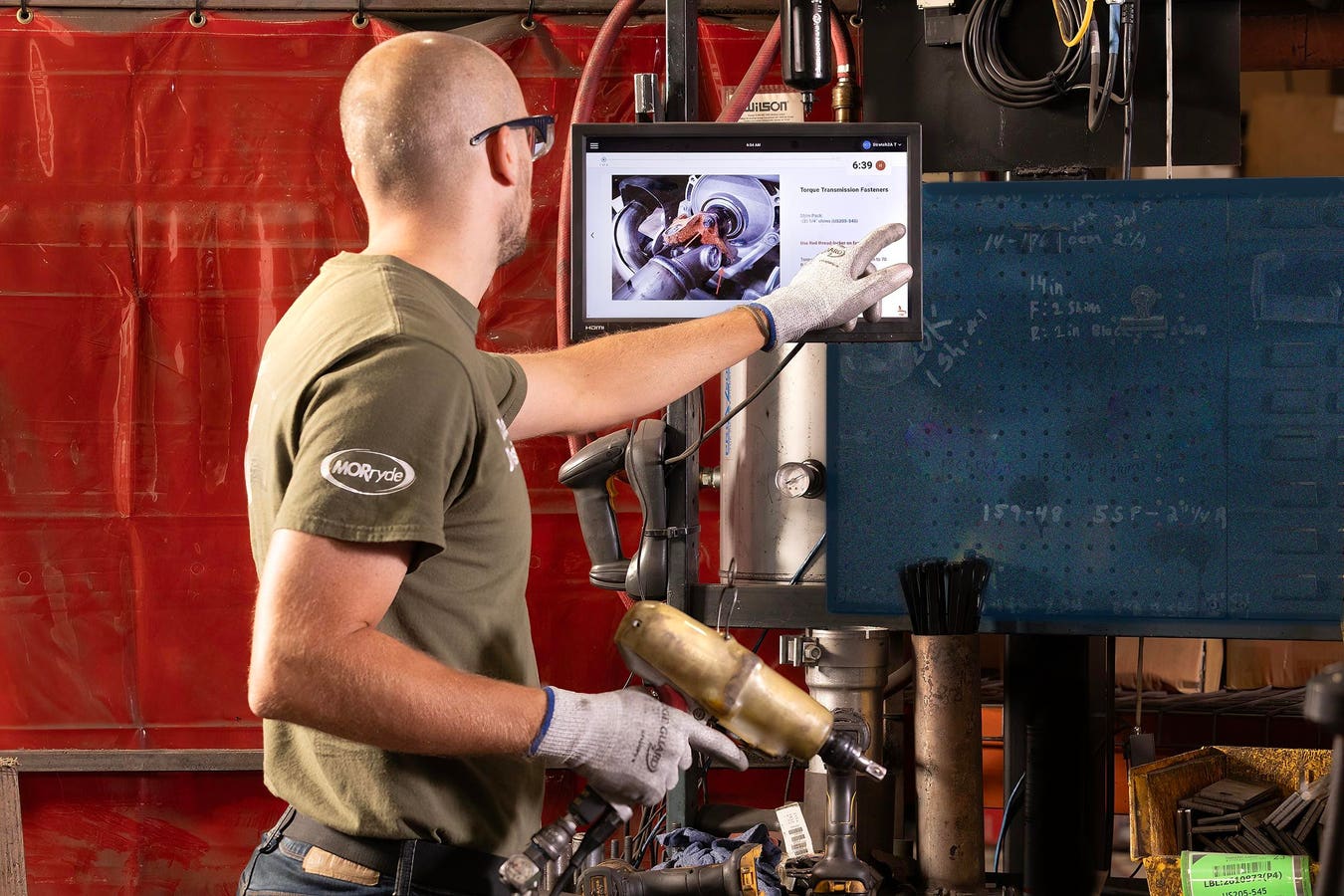In the all-hands-on-deck move toward manufacturing digital transformation, the usually touted solutions leave too many small- and medium-sized manufacturers out in the cold, particularly those whose operations can’t justify traditional automation. Buzz about Industry 4.0 advances like robots and cobots, the often poorly understood catchall of the Industrial Internet of Things, and AI replacement of knowledge work has many smaller industry players just scratching their heads.
That’s because those ultra-high-tech solutions aren’t where the savings are for smaller manufacturers. MORryde, a manufacturer of RV components and other proprietary vehicle parts and accessories based in Elkhart, Indiana, has achieved a production output improvement of 50% and has greatly improved its product quality with Pico MES, a lower-tech solution for digitalization for industrial SMEs.
Pico MES is a factory workflow software package made by an eponymous startup headquartered in San Francisco. The company offers a manufacturing execution system based on the actual jobs factory line workers must accomplish, digitizing assembly processes and tool usage to improve speed of training, factory productivity and product quality. Pico MES closed a $12.35 million Series A funding round backed by Bosch Ventures in August.
“I believe no other software system has been built from the factory fundamentals,” said Pico MES co-founder and CEO Ryan Kuhlenbeck, a veteran of Tesla and General Motors. “We built a product that tackles the basics like labor, with an interactive environment that guides the workers. We want to be the backup system that tells you what to do, just like a YouTube video that tells you how to fix your fridge, then goes away when you don’t need it.”
The Pico MES system is built on several fundamental elements. The first is visual worker guidance, with job instructions displayed on screens at each workstation, combining all workflows, procedures and necessary documentation together into a digital twin of that portion of the manufacturing process, making the operator’s task crystal clear and providing critical error-proofing. Next is connected tools, which brings the IIoT to life for small- and medium-sized producers. Pico MES comes with a pre-loaded library of over 1,900 tools that are able to be immediately connected, and has capability for custom connection of any others the customer wishes to add. This provides additional error-proofing, with the system’s ability to stop a tool if it’s being used incorrectly. Third is automatic data recording and traceability, which ties the shop floor directly to critical oversight functions like quality and engineering. Last is ease of setup, which allows customers to get the system into initial use the day it arrives.
MORryde has certainly become a big believer. “We started [with Pico MES] a little over a year ago,” said Greg Whitt, process improvement engineer at MORryde. “It’s growing as we’ve gotten the groundwork done. Automation is a big focus for MORryde. When RVs are hot, you can’t hire people in the Elkhart area.”
MORryde’s engineers came across Pico MES at the Fabtech trade show a couple of years ago and decided to give it a try. “We have 13 different plants in the Elkhart area, and we didn’t want a library of 13 different sets of software,” said Whitt. “At our first meeting with Pico MES, I was thinking, ‘Wow, I could use this here… and here… and here!”
One of the first applications the MORryde engineers went after was also one of their toughest. “Our hardest application is our chassis retrofit line, where we have to re-install the drivetrain,” Whitt continued. “It involves a number of fasteners, all torque-specific, and there were a couple of common problems there we wanted to avoid from the quality side. It all came together and showed Pico could handle it. Once we got that in place, we went looking at where else we could apply it.” The company has now moved over 500 of its processes to the digital Pico MES platform, and has achieved a 50% increase in production output.
“We just want to build good stuff,” added Jack Enfield, marketing manager for MORryde. “This is a tool that helps us do that–it uses tech to improve our quality.”
As MORryde has expanded its use of Pico MES, it has seen additional benefits. “There’s been a long-term issue of how to keep communication between administration and operations open,” Whitt said. “Pico is very powerful for that. There can often be a disconnect, almost animosity even, between engineers and the production floor. This helps close that gap too. It also captures feedback from Sales on changes they’ve requested–having Pico puts that right in front of our operators.”
For Pico MES, it’s about the cumulative effect of solving multiple problems on the factory floor simultaneously. “The problem to me in U.S. manufacturing is that we’ve already taken out the big hitters,” explained Kuhlenbeck. “It’s hard to see the 1%-2% losses that add up to 20%. But here’s how you get that back: ‘Here’s a problem, squash it. Here’s another, squash it.’ The key is recognizing what’s holding your operators back. Each individual problem is small, and not worth the effort of going after by itself. But all together, solving them means a big benefit.”
Read the full article here





